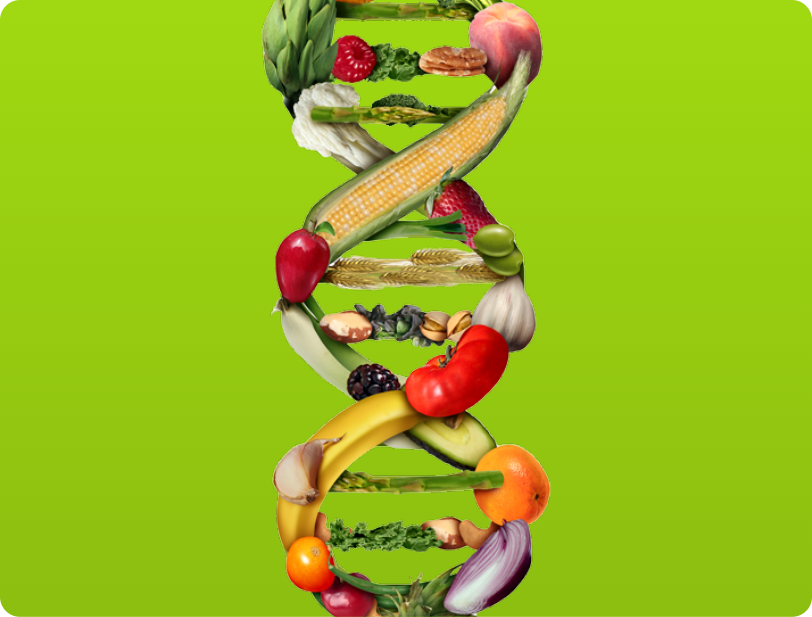
A personalised nutrition plan, based on a simple genetics test, is individualised to meet the needs of each person, for weight loss, treating health conditions, weight maintenance, and for increasing body awareness.
Finally!
With this information at your fingertips, you can tailor your eating plans to meet your specific needs, especially with weight loss.
Genetic test results introduce you to you, to how your body functions and what it needs to both operate optimally and to lose weight.
It isn’t dieting, it’s eating
Usual population nutrition guidelines and diet industry fads are not tailored to meet your specific needs. The idea that one diet or eating plan fits all is irrelevant. It appears useless, more obvious than ever, as the understanding of genetic traits explodes.
Genes and their variants affect the metabolism and absorption of carbohydrates, fats, proteins, vitamins, and minerals and affect food tolerance. Simultaneously, nutrients influence the regulation and expression of the genes. Gene expression changes according to what you eat. In other words, it is in sync and interactive.
If you could ask your genes what foods are best for your particular health, they would answer.
Are you sensitive? Are you less sensitive?
A simple genetic test will indicate if you have any genetic variants or any changes in your gene sequences. It will tell you about your sensitivities to outside influences, like foods, whether favorably or unfavorably. It is what makes you an individual. It might explain why you gain weight when eating a high fat diet, but someone else can eat it without the gain.
Now you will know.
Now you can make advantageous food choices based on you. The genetic test results guide you. It’s instructions. It’s personalised.
Let me explain.
Let’s use caffeine as an example. Caffeine? What does caffeine have to do with weight loss?
Yes, caffeine causes obesity in people with a certain genetic background. For others, it speeds up the metabolism and helps with weight loss.
Caffeine is a stimulating psychoactive substance found in many foods and drinks such as tea, coffee, cola, chocolate, energy drinks, and more. In a situation where the breakdown of caffeine is normal, caffeine is delightful. It can provide a feeling of being refreshed and focused, it speeds up metabolism and reduces pain sensations.
In a situation where there is a tendency to accumulate caffeine, it remains in the blood in high amounts. Perhaps you have a variant of the CYP1A2 gene that may influence the production of the enzyme involved in caffeine metabolism. This is not good if you drink a lot of coffee every day. This can lead to anxiety, restlessness, irritability, and an increase in the risk of heart disease.
This accumulation and state of stress and anxiety cause the release of a hormone called cortisol. Cortisol is an anabolic hormone, which causes fat storage and slows down the rate of metabolism. This is why caffeine will cause weight gain or make it difficult to lose weight among those who have a tendency to accumulate caffeine.
Curious about your genetic tendencies?
If you know your tendency to obesity, you have some control over how your genes are expressed since food choices and lifestyle are important regulators of gene expression. Do you have a high tendency for a slow metabolism? Do you have a low tendency for insulin resistance? Want to do something about it?
Your personalised nutrition recommendations are a strategic plan to help, to support a high metabolic rate and to help with weight loss. Implementing genetic based nutrition recommendations is predicted to result in weight loss of up to 10% of total body weight in just 3 months.
What are you “weighting” for? Make it personal.
